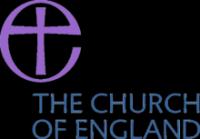Home | Anglican Church | Church of England
|
|
|
As a result of Augustine's mission, the church in England became an integral part of the Roman Catholic Church and acknowledged the authority of the Pope. Prompted by a dispute over the annulment of the marriage of Henry VIII, the Church of England separated from the Roman Catholic Church in 1534 with the Act of Supremacy, beginning a series of events known as the English Reformation. Both Catholic and Reformed factions vied for determining the doctrines and worship of the church. This ended temporarily with the Elizabethan settlement, which developed the understanding that the church was to be both Catholic and Reformed: * Catholic in that it views itself as a part of the universal church of Jesus Christ in unbroken continuity with the early apostolic church. This is expressed in its emphasis on the teachings of the early Church Fathers, as formalised in the Apostles', Nicene, and Athanasian creeds. * Reformed in that it has been shaped by some of the doctrinal principles of the 16th century Protestant Reformation, in particular in the Thirty-Nine Articles and the Book of Common Prayer. During the 17th century, political and religious disputes raised the Puritan and presbyterian faction to control of the church, but this ended with the Restoration. The contemporary Church of England still continues to contain several doctrinal strands, now generally known as Anglo-Catholic and Evangelical, which reflect the early divisions. In recent times, tensions between theological conservatives and progressives find expression in debates over women's ordination and homosexuality within the church. The Church of England has ordained women as priests since 1994 and is in the process of considering the consecration of female bishops. Since the Reformation, the Church of England has used an English liturgy. The Book of Common Prayer was based on original writings and translations from the Latin services by Thomas Cranmer. This liturgy has been updated and modernised at various times. The church also adopted congregational singing of hymns and psalms. The governing structure of the church is based on the traditional parishes which are gathered into dioceses presided over by a bishop. The Archbishop of Canterbury is the Primate of All England and a focus of unity for the whole Anglican Communion worldwide. The General Synod is the legislative body for the church and is comprised of bishops, clergy and laity. However, as the established church in England, Parliament has the right of final approval of all measures. |




 RSS
RSS